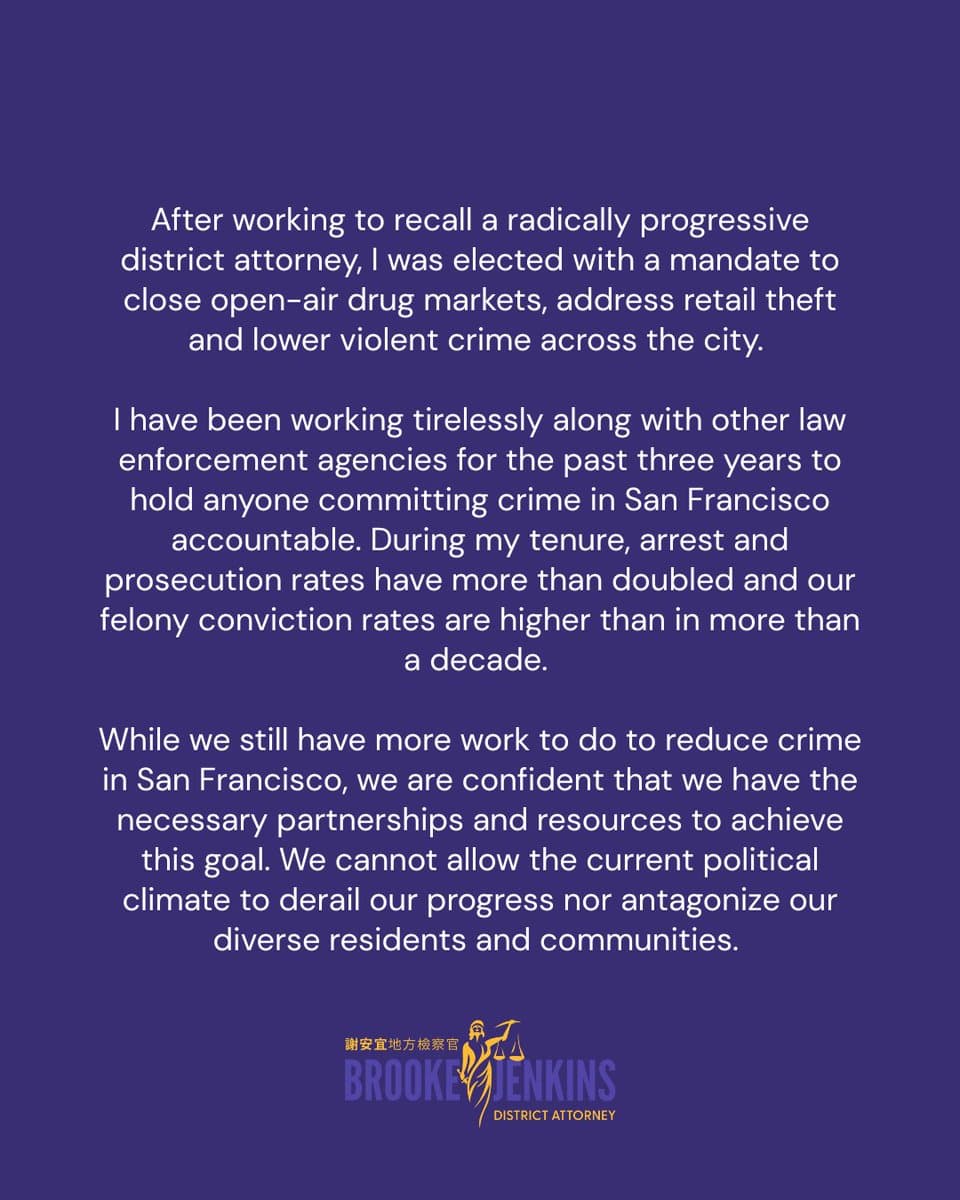Progressive DA Policies Show 7% Relative Property Crime Increase Amidst Broader Urban Decline Debate

A recent social media post by Kane 謝凱堯 has sparked renewed debate on the role of progressive district attorneys in urban areas, stating, "> The correlation between electing progressive DAs and urban decline is so consistent it could be mistaken for a law of nature." This assertion highlights a complex and often contentious discussion regarding criminal justice reform and its wider societal and economic implications for cities.
Empirical research offers a nuanced perspective on these claims. A significant study by Petersen et al. (2024), analyzing the 100 largest U.S. counties from 2000 to 2020, found a statistically higher relative rate of property crime, approximately 7%, in jurisdictions after a progressive prosecutor took office. This increase in property crime largely drove a relative rise in total crime rates. However, the study emphasized that while crime rates fell in absolute terms across both progressive and traditional jurisdictions during this period, the decline was less pronounced in areas with progressive prosecutors.
Regarding violent crime, the same study indicated that progressive prosecutor policies generally had no reliable overall effect on violent crime rates across the entire study period. While a specific three-year window between 2015 and 2018 did show significant positive effects on violent crime in progressive jurisdictions, this trend was not sustained. Other analyses, including those from Brookings and the Urban Institute, have also concluded that progressive prosecutor policies are not directly linked to increases in violent crime.
Proponents of progressive prosecution advocate for reforms aimed at reducing mass incarceration, addressing racial disparities, implementing cash bail reforms, and diverting low-level offenders. They argue these policies foster community stability and can ultimately reduce crime. Conversely, critics, such as those from the Manhattan Institute, contend that more lenient approaches can erode public safety and quality of life, potentially impacting urban economic development and population trends. The broader concept of "urban decline" encompasses factors beyond crime, such as business investment, housing markets, and overall civic health, which remain subjects of ongoing research and public discussion in relation to prosecutorial policies.